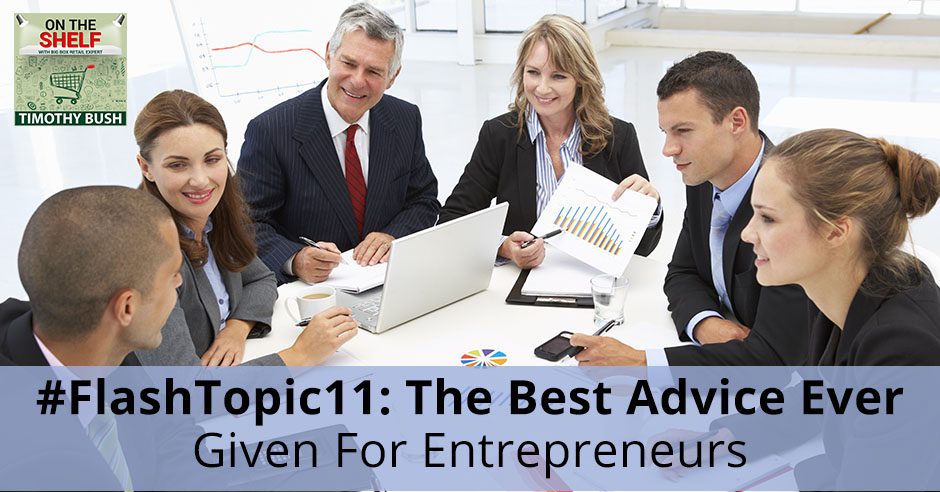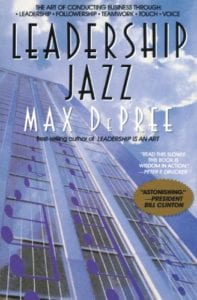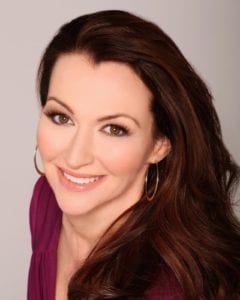
More and more people are wanting to become entrepreneurs. However, what is that really like? Before jumping in with both feet, listen to what the experts have to say. Joe Tarnowski, Tracy Hazzard, Jamie Robinson, and Salah Khalaf are back on the panel of Flash Topic, joined by a new addition, Shannon Curtin of The Possibility Group, to dish out some of the best advice they have for aspiring entrepreneurs.
—
Listen to the podcast here:
#FlashTopic11: The Best Advice Ever Given For Entrepreneurs
The beginning of the year, for me, is Monday on steroids. It’s like every day is Monday. You’re just trying to get everything off the ground. It’s a new year and you just want to get it started and get it kicked off right. I’m sure that you are feeling the same thing, but I hope that you’re having some success. I hope that things are falling into place and that you’re getting on track. I hope you’re getting things down on paper and you have a good plan of action and that you’re executing on it. That’s the most important thing. Anybody can create a plan. It’s not that difficult to create a plan, but where’s that plan going? What’s the end result of that plan? What’s the goal of that plan? Are you executing on it? Do you start every single day in a fog and you’re like, “What am I going to do today? How am I going to do it? How are things going to come together?” Do you spend some time in the evening before putting down what you’re going to do that day? Does what you’re going to do that day tie into your overall plan? How are you executing your day-to-day? I’d be interested to know.
Please reach out to me and let me know what you are doing, what you’re using and what apps and different planners you are using to execute your every day. Personally, I use a couple of different things. The Full Focus Planner by Michael Hyatt is one of my favorites. I use that every single day. I also use the journal that comes from Michael Hyatt. I’m interested to know how you stay on track. It’s a busy time and if you don’t have a plan right now, the year is going to go by so fast. By the time you’re finished with it, you’re going to think, “What did I get accomplished? What happened? Did I reach my goals? Did anything that I thought was going to happen at the beginning of the year actually happened?” I hope for you that it does. I hope that you are on track. I hope that you have a plan and I’d love to hear about it. I’d love to know what you are doing, so please reach out.
It’s Flash Topic Day and we are going to do Flash Topic Eleven. We have a huge panel. We have some of the regulars back. Jamie Robinson is back, Tracy Hazzard is back, Joe Tarnowski is back, Salah Khalaf is back but we have a new addition to the Flash Topic panel and her name is Shannon Curtin. I know that you know who Shannon is because she was on the show. She is a phenomenal addition to the Flash Topic panel and adds a lot to this particular episode. We set up a scenario based on a scene from Spy Game with Brad Pitt and Robert Redford. That’s all I’m going to say. I’m going to let the podcast speak for itself. I hope that you enjoy it. We had a lot of fun doing it.
—
I’m so glad to have you all here. I appreciate your time.
Thanks for having me.
I’ve been thinking a lot as always and quite honestly, I never decided on the topic until I have to because everything in my life is a crisis. I have to wait until the very last minute to come up with what it is we’re going to talk about. In fact, it went longer or closer down to the wire than it’s ever been. Before we get into that, we have a guest panelist. Her name is Shannon Curtin. Shannon, how are you?
How are you guys?
We’re all awesome. I know who you are because Shannon has an episode coming out On The Shelf. Shannon, for the purposes of the Flash Topic and people that might not read that episode, why don’t you tell us all a little bit about yourself?
I have had a long history in career and beauty. My area of expertise is in the beauty industry. However, I’ve been a retailer. I worked at Walmart Corporate for a long time and at Walgreens leading their personal care division there. I’ve been a manufacturer leading Coty Beauty North America and I am a consulting helping small and mid-sized companies and some large companies to find success and transformation. A lot of people want to transform, but it’s a process and helping people get through and defining where they want to go. Putting the right processes in place in order for them to be efficient and effective going forward. That’s what I’m doing now and I’m super happy to be here with you.
Get comfortable with being uncomfortable. Click To TweetShannon undersold herself because, for anybody in the beauty business, she is a legend. Everybody knows who she is in the beauty business.
Has anybody seen the movie Spy Game? The one with Brad Pitt and Robert Redford. The whole idea behind this is these guys are in the CIA back in the Cold War. Robert Redford is Brad Pitt’s mentor and he’s teaching him how to become a case agent. At one point, Brad Pitt is eager to get going. He’s like, “Teach me something else.” Robert Redford says to him, “Put away money so that you can retire somewhere warm and don’t touch it for anyone ever.” That was his last piece of advice to Brad Pitt. Put away money so you can retire someplace warm. I want you to picture you’re lecturing and you have a group of maybe want to be entrepreneurs and you finished your lecture. This lone person comes up to you and says, “I want to be or an aspiring entrepreneur. What is the one piece of advice you would give me before I jump in with both feet?” The one thing that you would tell them or the one thing that you would say before they jump in with both feet. Somebody is in front of us and they haven’t taken that leap yet, but they’re going to and they want to.
As we have all taken that entrepreneurial leap, I’m wondering what you would distill it down like, “Is it a warning? Is it a watch out for? Is it a make sure you? Is it I’m so happy?” I don’t know what it is for everybody. I’m interested to hear because I know that a lot of people who listen to this are in the process. They have ideas they’re thinking about it. They’re wondering about it. The reason I know that is because I have a thing on my website where they can come in and they can ask for a document that I offer for free. They have to tell me what stage they’re in and a lot of them are in the, “I have an idea or I have a product in production or I’m thinking about.” They’re on the cusp of jumping in. As we all know, not everybody is an entrepreneur. Some people want to be, they think about being, but not everybody can do it because it takes a special kind of person. I’m interested to know what that person shuddering in front of you after your big speech and you’re going to give them that one piece of information.
It’s not inspirational, but it is something that they need to consider for growth. Be comfortable and get used to being uncomfortable. Get comfortable being uncomfortable because when you’re in a very structured company that may have a lot of processes in place. There are current ways of working. There are current ways of doing things. That don’t exist when you start something from scratch. The good thing is that most entrepreneurs don’t wait, they create. In that creation. You’re going to be uncomfortable because you’re going to be stretching your mind and yourself in new ways. You’re going to have to say and ask for help when you don’t know what to do.
When you have enough courage to ask someone, “What do I do because I haven’t been in this particular place before?” It will help that person a lot, but it’s uncomfortable because you may be considered the best at what you do in a particular field. Then you’re coming and you’re creating something from scratch and learning and stretching yourself. When I was getting certified as a Green Belt in Six Sigma person, I’m going for a Black Belt, I was stretching myself in a whole new way. My teacher was hard and wonderful. That’s the type of people that you surround yourself with. The ones that continue to stretch you, that take you outside your comfort zone and that’s where you’re going to grow the most.
I have a video and I have that in the title but it wasn’t aimed at entrepreneurs. I had that advice for people on staff when I was trying to get them to do more videos. I tell them, “You have to be comfortable being uncomfortable because eventually you’ll get used to it and you’ll start embracing it.” I agree 100% with that.

An entrepreneur has to always be able to have an open learning. They have to be able to always learn something new and open to learning new stuff because that’s going to be a big part of their success. They can’t grow if they’re not able to learn every day and even learn from failures as well. In entrepreneurship, there’s going to be failures that they’re able to learn and fix and move on and learn from their failures as well. It’s going to be very important for your success.
When you’re talking about growing both as a person and as an entrepreneur, the only way you’re going to grow is by getting uncomfortable whether it’s learning something new. Because you’re uncomfortable in the beginning when you’re learning something new or trying something new or failing and learning from that. There’s always going to be a level of discomfort.
With being an entrepreneur, there are risks. You’re becoming a businessman and you’re investing money. Nobody’s paying you a paycheck so they got to be open to all these things we’ve talked about learning and stuff.
Joe, were you trying to piggyback on that or do you have a specific piece of advice you want to offer this individual?
I do have a separate piece of advice that’s a little different but a little related. Be honest with yourself and with the people who you deal with. Always have some integrity in everything that you do. If you are always honest in both of those ways, that will help to guide you in the right direction. You’ll just feel better about the things that you do and going through the challenges that you face.
In line of learning, just to put a word on it, is curious. Please read a lot on your own on the things that you don’t know and things that you can be better at. Things that we talked about at some point where most of the population doesn’t read a book a year, let alone a book after they graduate from high school. If you can challenge yourself to read a book a week or every two weeks, it continues to expand your experiences in a safe setting because you’re learning through other people’s experiences. I read the stuff that’s sexy like growth and how to make money. I don’t read anything else that’s fictional. Ask people tons of questions. Whoever you meet, have three or four questions that you want to ask no matter who you come in contact with. You never know if that’s going to be a future client or a future prospect or a future business person.
Surround yourself with people that stretch you and take you outside of your comfort zone because that’s where you’re going to grow most. Click To TweetWhat I’ve learned a lot working on both sides of the business is that you never know who you’re going to work for or work with. Having a connection and learning how to make connections with people is so important. The majority of your earnings potential comes from the relationships that you have. Curiosity and being interested in other person and sharing differences like, “This is my background, this is your background. How can we work together? How can we find value in the work and bringing value forward in the work?” Just an appetite for being curious about the world that’s around you.
I love business books and books on productivity and growth, but I also think it’s beneficial to include some literature in that too. The nonfiction fiction books give you the tools, but you incorporate some fiction and literature into that, you’ll learn about people. You’re dealing with people in business, so they go well together if you round down. I try to do one fiction, then I’ll do one nonfiction. I’ll go back and forth, back and forth, and it rounds it out a little bit.
It sparks your creativity. Whatever it is, just read something every day.
Tracy, what do you think? You got this person in front of you and they’re wanting to know what your one thing is.
I’m tossing around too that’s why I’ve been a little quiet here. I wish I could just take them and go, “Please don’t spend your money yet.” Stop them and that is that you need market proof first. It is the number one reason why my client’s products and products are more successful than others. It’s the number one thing that we do. We make sure that it’s not that people like our products, but they will buy our product, our idea, our thing, or whatever it might be. We’re checking whether or not someone is going to plunk down money for that. We don’t always go all out in an invention and do it. We check it in small ways and we’re continually saying, “If we added this, would this be a value to you? If we added that, would this be a value to you?” We give images and 3D printings and do whatever we can to not spend that money and go all in until we’re sure that there’s value in it.
We so often get into this world where you go, “My mom and everyone else loves my product. They love my idea,” but that doesn’t matter in the scope of commerce. If you’re going to risk everything and a lot of people do, I want you to make sure you have market proof first. It’s the thing I lectured the most on. It’s my number one piece of advice. A close second to that is to stop trying to do it all yourself. Get some real expert help. Because you’re creative, because you’re adventurous and because you have the mindset of being able to develop something, you think that everything is negotiable. Everything is inventible, everything should be able to be done by you and the reality is there’s a lot of landmines. There’s a lot of insider information. Get some experts in your corner and listening to them and being curious about what they can do, all of those things that everyone just suggested here, that’s the most critical items I see. Those being successful are getting input from outside of themselves.

Jamie, what do you think?
The first one that’s not maybe as strong as the second is planning. Please plan and make sure it’s a good plan. If it’s not an emergency, don’t jump. Sometimes you get in a situation where you’re laid off or fired or whatever. If it’s not an emergency, don’t jump in until you’re ready, until you know what you’re going to do. The second one is humility. The internet has been sensationalized. People say, “I’m going to quit my job and I’m going to go sit on a beach and I’m going to be a millionaire.” It’s not that simple. I know there’s a difference between an entrepreneur that develops a widget and a service entrepreneur, but be humble. Understand that it’s not going to happen overnight. Even if you do plan research, read, and learn, it’s still going to be a process. Do your best to be prepared because you’re going to get hit from every single angle. Sometimes we don’t recognize that when we’re just employees of somebody else. When you’re the boss and you’re the one who’s in control and you’re not ready, it could be disastrous.
It’s interesting that you say to be humble because humility can tag onto almost everything everybody has said. Entrepreneurs have to be aggressive and they have to be confident and they have to be sure of themselves. Humility is a big part of being able to enlist people’s help. Humility is a big part of learning. Humility is a big part of understanding that you don’t know everything. Humility is a big part of being uncomfortable. I don’t think that you can do a lot of these other things without humility.
We’ll assign Jamie’s plan to Tom even though he couldn’t be here. His big motto and the thing he tells everyone is hope is not a plan. It’s our little motto here. Hope is not a plan. He says that it’s not that your plan is going to work out as you plan it. It never does. “The best-laid plans,” you hear that again and again. When you have that plan, when you’ve thought these things through, you have the preparation and you’re much more able to be flexible. You’re much more able to shift and you know when things are right and when they’re not. That planning process is important. I know he would say, “Amen,” to that one, Jamie.
I would tell them that you need to understand ahead of time how far you’re prepared to go and what you’re prepared to do to get there. I have all the time. People that want to get into retail, they want to dip their toe into retail, they want to think about getting into retail. No matter what avenue, whether they’re coming through easy or wherever they’re coming from. What I always tell them is, “You can’t try at getting into retail. You either want to get into retail or you don’t. Once you start to unhook and take some of these steps, you either have to go all into it or you’re not going to make it.” That’s true for whatever it is you want to do. Before jumping in with both feet, it’s important to figure out how far you’re willing to take this. How much money you’re willing to invest? How much time you’re willing to invest? What you’re willing to give up to make it happen and the things that you’re willing to do? I don’t think that people look at those hard parts first because it’s just too exciting and nobody wants to think about bad things.
I get a lot of people who’ve gone way over a line because they didn’t think this all the way through. They’re just like, “It’s just another investment, another $5,000, another one of these.” The next thing you know, they’ve lost their home, their family, and everything because they didn’t think that through from the beginning. They’re making those decisions with the excitement of, “if I do this and I buy this inventory, then I can do that.” All of the investment they put in up to that point is weighing on them. I had people come to me and say, “I can’t quit now because I invested in the patent.” I was like, “You can.”
The majority of your earnings potential comes from the relationships that you have. Click To TweetThat reminds me of what we talked about. How do you know when it’s time to stop or get out? You got to keep that in mind, “What’re your limits?”
It’s hard to see it once you’re in it. It’s hard to let go of it when it’s so personal. Tracy, I’m shocked to hear you say that family acknowledgment of your thing is just not everything.
I called them the yes and no’s because you also get people in your family who will tell you, “No, don’t do that sweetheart. Don’t quit your job.” It’s because they love you. It’s only coming from a place of love which is not objective. You need somebody to say, “I’ll plunk down $20 for that.”
I want us to pick our favorite one and that way we can all say, “If somebody came to us, the number one thing we would tell him as a group is this.” There are nine pieces of advice here. If you’re wanting to jump into entrepreneurship, be comfortable with being uncomfortable. Be comfortable learning. Be honest and have integrity. Read a lot, no matter what you’re reading, even if it’s ECRM’s blog, make sure that you read a lot. Get market proof first, even if it’s a service. Understand, “Is this something that people are going to want to buy?” Stop trying to do it all yourself. Maybe at the beginning when you’re in the weeds, you’re going to be doing a lot of it yourself.
The moment that you can delegate something, hire somebody to do something that you’re doing. In fact, if you look at any coaching company, one of the key things that they always say is, “How much money do you make an hour as an entrepreneur?” Let’s say you make $150 an hour. How much could you hire somebody to do your accounting for? Probably $20. Why are you working and doing something when you make $150 an hour or something that you can get somebody to do $20 an hour? It makes so much logical sense. Stop trying to do it all yourself. Please plan as much as possible. Be humble. How far are you prepared to go? If you had to pick one out of there, what would you pick?
It’s hard because they’re all interconnected. When I look at everything we’ve done, an entrepreneur should be able to sell as well. They got to be selling their service, their product. They have to have that skill. They have to be comfortable and be honest with integrity. They have to learn. Be comfortable with being uncomfortable.

I would vote on that one too. It covers all the bases in some ways, shape, or form.
That’s my vote too.
I’m going to go with you, Tim. I just saw The Untouchables so I kept thinking, “What are you prepared to do?” That’s going on in my head because if you’re prepared to be uncomfortable, if you’re prepared to be curious, if you’re going to go all in, how deep are you prepared to do? That covers everything. You’re going to have to do so many things you never imagined you were going to do. You’re going to have to be someone you didn’t know you could be. It covers all of that.
Shannon, are you going to go with yours or are you going in with somebody else?
I’m trying to think if I can combine the top two in some way. Prepare to be uncomfortable and how far will you go is also all the things that we talked about. The level of discomfort is something that you physically feel as well as mentally feel. If we could put those two together into a user-friendly term, that would be my ultimate advice. There’s this physical and mental push that you have to go beyond what you’ve gone before to get to what you want. That’s important for people to understand that and they don’t know what it’s like until they do it. They don’t know what it feels like until they’ve done it. It’s just trying to express that manifestation in a way that they can get the sense for it. Mine would be the combination of those two coming together into a new term. It’s so important for people to know that they’re not alone when they feel they’re alone. That’s another thing.
We can combine those and say, “Be comfortable with being uncomfortable and know how uncomfortable it too far.”
If I had to pick one, I’m going to pick Jamie’s be humble because humility is not something that comes supernaturally to me. It’s something I try to work. It’s a key aspect of everything when you’re an entrepreneur because nobody knows everything that they need to know. If you don’t have a certain level of humility, you’re never going to stop and read. You’re never going to stop and ask. You’re never going to tell yourself, “How far are you prepared to go?” Because you never think that you’re not going to get there. You’re not going to plan because people that aren’t humble don’t need to plan. They have it all figured out. Who needs market proof when you’re not humble? Who wouldn’t want to buy my product?
Do your best to be prepared because you're going to get hit from every single angle. Click To TweetHumility touches all of these ideas that you put out. I’m not sure that humility is something that you can go buy at the store. I don’t think it’s something that you can say, “Tomorrow I’m going to start being humble.” It’s something that you have to work on, think about, and wonder about. You might even need to have some examples of some people in your life that can display humility. You may have to go read a book to figure out what humility looks like.
When you said that you think that this is something that you have to work on, that is not. I would never say that Tim does not have humility. Tim is not humble. That is the opposite of you to me.
For your audience, I will tell them the importance of humble by saying that nothing will stall and destroy a company as much as arrogance in denial. Whatever will scare you into believing that you start from a humble position is the best way to grow, know that your company will not grow. It will fail if you’re arrogant and in denial of inevitable facts around you of needing to learn and to ask questions and ask for help. That’s the other encouraging thing during this process because it won’t be overnight, but there’s going to be a lot of growth. The person is going to continue to grow and learn things and understand things better. By the end of the process, they’ll be glad they did it.
The new movie that came out with Mark Wahlberg called Mile 22. If you haven’t seen that, it’s worth it and it’s even worth it to look it up later and find out that the unit in that movie is a real unit. It’s called something different. Mark Wahlberg says in there, “Ego is not your amigo.”

As many of you know, I worked for Herman Miller. It was early in my career so it has informed me as to how to run a company and how to treat your employees. They’re such a fabulous company to work for. Herman Miller goes on this policy of servant leadership. It’s almost a mandate of servant leadership. It was set by one of the children of their founders, Max De Pree. He wrote a book called Leadership Jazz and it is all about being a servant leader. When you come from a place of servant leadership, your job is to serve that sales are an opportunity. Observed to serve to provide somebody a solution. When you look at everything from that lens, you are in a place of humility at all times. That’s one of the things that informed me.
I got another one for you. It’s called Leaders Eat Last by Simon Sinek, the guy who wrote Start With Why. It’s the same principle. He leads off with a military example, which is where the term came from.
John Maxwell books are great about servant leadership too. There are lots of lessons that are similar across many books. At the core of what we do, we serve customers and you can keep that center. It’s a service and a chance to be available for everyone on your team as a servant leader is keeping your head squarely focused on, “Who am I here to serve?” That’s who pays our bills. That’s who keeps us in business.
Early on in my business, we were brainstorming on this or that about the business. My wife had been reading some passages and she came up with, “Just service first.” In everything that you do, service first. Service before you get paid. Service before you get a raise. Service before you get the client. The reason I started the podcast was to give away the information, to start people thinking that you can do it on your own. You can get your products into retail. On more of a serious note rather than movie quotes, one of my favorite speakers is Jim Rohn. He was always super perplexed by people wanting to learn how to be a millionaire or wanting to be an entrepreneur or want to do anything in life and not going and picking up books from people who have already done it. That never made a ton of sense to him that you would want to do something and you would skip the opportunity to read and learn from somebody who has already done what you’re trying to do. That falls into reading a lot.
We’re going to put these in the show notes. As always, when we bring the panel together, the end result of it is for the audience is a tremendous amount of knowledge from people that have been there, have done it, and are successful at it. I can’t tell you how thankful and grateful I am that you are willing to take time out so that people can learn from the things that you’re doing. I want to it say one more time. You’ve got to be comfortable being uncomfortable. You got to be comfortable learning. Have honesty and integrity. You need to read a lot. You need to get market proof first. You got to stop trying to do it all yourself. Please plan as much as possible. You need to be humble and you need to figure out how far you’re prepared to go. I don’t think that any one person could have thrown that altogether. Many thanks to everybody for weighing in on the spur of the moment. Any final thoughts from anybody?
It may be fun for your audience to get our top picks. Maybe they can all send you our top three to five to ten books that we read this 2018. We already have people who’ve gone through and said, “These are great books,” and help narrow down the selection for your audience.
Instead of that, why don’t we make that our next Flash Topic? It won’t be such a Flash Topic only that we won’t know what books we’re going to bring for. Why doesn’t everybody bring their top one to three books that they read in 2018? We will create a complete book reading list for the big box listeners out of the next Flash Topic. We’ve had a tremendous year with a Flash Topic and I appreciate each and every one of you. Thank you so much. We will see you again in the next episode.
—
There was a lot of great information there. I know a lot of you are on the cusp of jumping into entrepreneurship. You’re thinking about it. You’re wondering about it. You’re thinking about making a product or you have a product in the works and you’re wondering, “What’s it going to be like to be my own boss?” The panel was able to give all of you some key advice. You can’t pay for advice like that. It was amazing. I was excited to hear what everybody had to say. I thought it was all super relevant. There wasn’t anything in there that I said, “That doesn’t fit. That doesn’t count or matter.” Everything in there was terrific nuggets of information from people that are successful at doing what you are wanting to do right now.
These are people that are being successful entrepreneurs. They’re willing to give some of that success on how they got there, what they did, over to you. That’s what the panel is for. That’s what makes Flash Topic awesome because you don’t just have to take my word for it. You can listen to three, four, five different opinions on the same topic and are able to get key information from all of those. I’m glad you enjoyed it and we’ll look forward to hearing and seeing your comments on Flash Topic Eleven. If you want to support the podcast right now, it’s easy. There’s a couple of different things that you can do. One, I would recommend that you go right now to On The Shelf “Now” Facebook group and hit join so that you can join that conversation. Then you can go to On The Shelf Now Facebook page and hit like or follow so that you can be in on that. You can go to Twitter and look up @OnTheShelfNow and follow us on Twitter.
Last but not least, you can go to Stitcher, you can go to iTunes, you can go to Spotify and subscribe to the podcast. All these things are ways that you can support the podcast if you’re enjoying it. We’re not asking for money, people. We just want to know what you think. We just want you to like the podcast, follow it, subscribe to it, and hit us up on our social media accounts. It’s great to speak to all of you. I look forward to the next time. Until then, I look forward to seeing your products On The Shelf.
Important Links:
- Full Focus Planner
- Jamie Robinson
- Tracy Hazzard
- Joe Tarnowski
- Salah Khalaf
- Shannon Curtin – Previous episode
- Coty Beauty
- Leadership Jazz
- Leaders Eat Last
- Start With Why
- On The Shelf “Now” – Facebook group
- On The Shelf Now – Facebook page
- @OnTheShelfNow – Twitter
- Stitcher– On The Shelf: How To Get Your Products Into Big Box Retail!
- iTunes – On The Shelf: How To Get Your Products Into Big Box Retail!
- Spotify – On The Shelf: How To Get Your Products Into Big Box Retail!
About Joe Tarnowski
 Dynamic and innovative content development expert with a proven ability to find information needs within any industry and engineer a solution to meet those needs via the most relevant media – whether it’s print, online, or face-to-face.
Dynamic and innovative content development expert with a proven ability to find information needs within any industry and engineer a solution to meet those needs via the most relevant media – whether it’s print, online, or face-to-face.
Skilled and experienced in both editorial and sales in the B2B publishing arena, with excellent presentation skills – whether one on one, a small group, or addressing a large audience at an industry event.
About Tracy Hazzard
 As a Brand and Product Strategist for Hazz Design, Tracy Hazzard has ghost-designed, sourced and launched 250+ consumer products generating more than $2 Billion at e-commerce and mass-market retailers. For over 25 years, she has worked with design-leading brands like, Martha Stewart Living and Herman Miller to out-design, out-source and out-profit the competition. Tracy is the co-inventor of 37 patents that have helped her clients get acquired and achieve high asset valuations. In addition to being an Innovation Columnist for Inc., she has been featured in Harvard Business Review, Forbes, Wired and CNN Money. Tracy co-hosts the podcasts: Product Launch Hazzards, Feed Your Brand and WTFFF?! 3D Printing: the 3D Start Point for disruptive technology.
As a Brand and Product Strategist for Hazz Design, Tracy Hazzard has ghost-designed, sourced and launched 250+ consumer products generating more than $2 Billion at e-commerce and mass-market retailers. For over 25 years, she has worked with design-leading brands like, Martha Stewart Living and Herman Miller to out-design, out-source and out-profit the competition. Tracy is the co-inventor of 37 patents that have helped her clients get acquired and achieve high asset valuations. In addition to being an Innovation Columnist for Inc., she has been featured in Harvard Business Review, Forbes, Wired and CNN Money. Tracy co-hosts the podcasts: Product Launch Hazzards, Feed Your Brand and WTFFF?! 3D Printing: the 3D Start Point for disruptive technology.
About Jamie Robinson
 Creating opportunities for businesses to succeed while taking a “common-sense” approach to marketing and creative services. Specializing in developing and implementing strategies that clearly define your brand’s marketing message, persuading your potential customer to react and respond. Creating brand awareness, equity, and measurable growth.
Creating opportunities for businesses to succeed while taking a “common-sense” approach to marketing and creative services. Specializing in developing and implementing strategies that clearly define your brand’s marketing message, persuading your potential customer to react and respond. Creating brand awareness, equity, and measurable growth.
About Salah Khalaf
 An adaptable, customer-focused RETAIL MANAGEMENT LEADER AND CONSULTANT, with profit and loss responsibility. Leverages strong interpersonal skills to work closely with cross-functional teams, as well as outside partners, ensuring ongoing growth and lasting success for an organization. A forward-thinking leader, who implements processes to streamline operations and drive business growth, promoting continuous achievement for a corporation. Highly skilled in the areas of strategic sourcing and planning, communication, and decision-making. A proven track record, utilizing broad-based management skills in merchandising, operations, and negotiations to yield increased sales and profit.
An adaptable, customer-focused RETAIL MANAGEMENT LEADER AND CONSULTANT, with profit and loss responsibility. Leverages strong interpersonal skills to work closely with cross-functional teams, as well as outside partners, ensuring ongoing growth and lasting success for an organization. A forward-thinking leader, who implements processes to streamline operations and drive business growth, promoting continuous achievement for a corporation. Highly skilled in the areas of strategic sourcing and planning, communication, and decision-making. A proven track record, utilizing broad-based management skills in merchandising, operations, and negotiations to yield increased sales and profit.
About Shannon Curtin

Along with being a wife, mother, beauty industry expert, art curator, real estate developer, traveler, foodie, wellness seeker and clean water activist, Shannon Curtin is also the founder of TPG “The Possibility Group”. After spending the last 18 years of her career leading beauty teams within big and small-box retailers across the United States, as well as transforming some of beauty’s most iconic brands as a manufacturer, Shannon created an unwavering positive mindset to any business challenge.
The TPG method starts with a positive approach to your business challenges. We listen, we focus on your unique strengths, your purpose, and “why” you exist. From there, we customize modern business solutions and action plans that are designed to move your business forward. TPG cares about you, the legacy you are creating, and the impact you are making on the world.
Transformation is really hard, yet remarkably rewarding. We will help you move through the hard part quickly, so that you have more time to enjoy the impact you have created. The group of experts assembled at TPG have deep expertise in their subject matter and they can help you overcome the obstacles standing in the way of your growth. TPG members will assist you in achieving what’s possible.
